Welcome to the world of Delta-8 THC, a fascinating and complex cannabinoid garnering significant attention in recent years. As the lesser-known cousin of Delta-9 THC, the primary psychoactive compound found in cannabis, Delta-8 THC offers a unique balance of potential therapeutic benefits and milder psychoactive effects. But as its popularity grows, so does the confusion surrounding its risks, benefits, and legalities.
In this article, we will dive into the intricacies of Delta-8 THC, examining the science behind its effects, exploring the potential health benefits and risks, and demystifying the legal landscape surrounding this enigmatic cannabinoid. So, buckle up and prepare for an enlightening journey into the ever-growing realm of Delta-8 THC.
Is Delta 8 THC legal in the United States?
The legality of Delta-8 THC in the United States is a complex and evolving issue, with federal and state regulations often presenting conflicting viewpoints. At the federal level, Delta-8 THC falls into a gray area. The 2018 Farm Bill legalized hemp and its derivatives, provided that the concentration of Delta-9 THC does not exceed 0.3% on a dry weight basis.
Delta-8 THC can be derived from marijuana and hemp; its legal status depends on its source. When derived from hemp, Delta-8 THC is technically legal under federal law. However, the Drug Enforcement Administration (DEA) has issued statements suggesting that synthetically derived forms of THC, including Delta-8 THC, are still considered Schedule I controlled substances under the Controlled Substances Act.
It is essential for consumers and businesses to familiarize themselves with the specific regulations in their jurisdiction, as the legal landscape surrounding Delta-8 THC remains in flux. As more research is conducted and the potential therapeutic benefits of Delta-8 THC become better understood, it is possible that future legislation may provide greater clarity and uniformity in the legal status of this enigmatic cannabinoid.
Statewide Delta 8 THC Laws
At the state level, the legal status of Delta-8 THC varies significantly. Some states have explicitly legalized or regulated Delta-8 THC, while others have banned or restricted its sale and distribution. In certain states, the legality of Delta-8 THC is still unclear, with no explicit laws or regulations addressing the compound.
States that banned Delta-8 THC:
- Alaska
- Arizona
- Arkansas
- Colorado
- Delaware
- Idaho
- Iowa
- Mississippi
- Montana
- New York (ban effective since July 2021)
- North Dakota
- Rhode Island
- Utah
- Vermont
- Washington
States that explicitly legalized or regulated Delta-8 THC:
- Illinois (legalized but with restrictions)
- Michigan (legalized with specific labeling and testing requirements)
- Oregon (legalized but regulated; proposed temporary limits in 2021)
In most other states, the legal status of Delta-8 THC was either unclear or fell into a gray area, with no explicit laws or regulations directly addressing the compound. Consumers and businesses must stay informed about the local laws in their jurisdiction, as the legal landscape surrounding Delta-8 THC is subject to change. To obtain the most accurate and up-to-date information on Delta-8 THC’s legality, consult your state’s official government website or seek legal advice from a qualified professional.
Does Delta-8 THC have psychoactive and intoxicating effects?
Delta-8 THC is a psychoactive compound that can alter the user’s mental state, producing a range of effects such as euphoria, relaxation, and altered perception. Although it is less potent than Delta-9 THC, the primary psychoactive compound in marijuana, Delta-8 THC still has intoxicating effects. Users often report a milder, more clear-headed high compared to Delta-9 THC. Still, the intensity of the experience can vary depending on factors such as dosage, individual sensitivity, and the method of consumption.
Can I travel with federally legal Delta 8?
While the 2018 Farm Bill legalized hemp-derived products containing less than 0.3% Delta-9 THC on a dry weight basis, the legal status of Delta-8 THC is more ambiguous. Some states have explicitly banned Delta-8 THC or have laws that classify it as a controlled substance. As a result, traveling with Delta-8 THC can be risky due to varying state laws and regulations. Researching the laws in your destination and any states you may pass through is vital to avoid legal complications.
Can I take Delta 8 hemp-derived products on a plane?
The Transportation Security Administration (TSA) follows federal regulations regarding cannabis and cannabis-derived products. Although the TSA is primarily focused on security threats, they are required to report any discovered controlled substances to law enforcement.
Since the legal status of Delta-8 THC is not explicitly defined at the federal level and may be restricted in some states, carrying Delta-8 THC products on a plane could potentially lead to legal complications. It is advisable to research the legal status of Delta-8 THC at your departure and arrival locations and consider the potential risks before deciding to travel with these products.
Does the FDA approve Delta 8 Products?
The Food and Drug Administration (FDA) has not approved Delta-8 THC products for sale or consumption. The FDA has warned about the potential risks associated with Delta-8 THC, highlighting concerns about product quality, labeling, and marketing practices.
The FDA regulates dietary supplements, food, and drugs, but the current regulatory framework for cannabinoids, including Delta-8 THC, is still developing. As a result, the safety, efficacy, and quality of Delta-8 THC products are not guaranteed, and consumers should exercise caution when purchasing and using these products.
What are the benefits and risks of Delta 8 THC?
Delta 8 THC is a minor cannabinoid found in the cannabis plant. Its psychoactive properties have gained popularity, reportedly milder than Delta 9 THC, the primary psychoactive compound in marijuana. The therapeutic or medical uses of Delta 8 THC include potential anti-nausea, anti-anxiety, pain-relieving effects, and increased appetite stimulation. Some users also report a clearer, more focused high than Delta 9 THC.
While there aren’t any significant public health concerns about Delaowever, there are risks associated with Delta 8 THC use. Since it is a psychoactive compound, it can impair cognitive and motor functions, leading to accidents and poor decision-making. Long-term use may contribute to dependence and mental health issues.
Additionally, the Delta 8 THC market is not as regulated as that of Delta 9 THC, so the quality and safety of products can vary. Choosing a trusted brand is crucial to avoid ingesting potentially harmful chemicals. More research is needed to understand emerging cannabis-derived products’ long-term effects and risks fully.
Is it safe around children or pets?
Delta 8 THC should not be considered safe for children or pets. Since it is a psychoactive compound, accidental ingestion could lead to serious health risks and complications for children and animals. Children are especially vulnerable to the adverse effects of THC due to their developing brains, and pets may experience toxic reactions or other health issues.
It is crucial to store Delta 8 THC products securely and out of reach of children and pets to prevent accidental exposure. If your child or pet gets into Delta 8 cannabis products, look to the animal poison control centers or the national poison control centers for guidance.
Does Delta 8 contain harmful chemicals?
The presence of harmful chemicals in Delta 8 products depends on the manufacturing process and the quality control measures employed by the producer. Since the Delta 8 THC market is not as strictly regulated as Delta 9 THC, some products may have a higher risk of contamination with residual solvents, heavy metals, pesticides, or other potentially harmful substances.
Additionally, converting CBD to Delta 8 THC may involve chemicals that, if not correctly removed, could pose health risks to consumers. Purchasing Delta 8 hemp products from reputable sources and looking for third-party lab testing results to ensure their safety and quality is essential.
Is there scientific research supporting Delta 8 Use?
Limited scientific research explicitly focuses on Delta-8 THC, as most studies have primarily examined Delta-9 THC or other cannabinoids such as CBD. However, some studies suggest potential therapeutic benefits of Delta-8 THC, such as anti-nausea, anti-anxiety, and pain-relieving properties.
A notable study conducted in 1995 on pediatric oncology patients showed that Delta-8 THC effectively reduced chemotherapy-induced nausea and vomiting. Despite these preliminary findings, more research is needed to fully understand the potential benefits, risks, and long-term effects of Delta-8 THC use.
What type of Delta 8 Products are Available?
A wide range of Delta-8 THC products is available on the market, catering to various preferences and consumption methods. Some common types of Delta-8 THC products include:
- Vape cartridges: These are pre-filled cartridges containing Delta-8 THC distillate that can be attached to a compatible vape pen for inhalation.
- Tinctures are liquid extracts containing Delta-8 THC that can be administered sublingually (under the tongue) or mixed into food or beverages.
- Edibles are food products, such as gummies or chocolates, infused with Delta-8 THC for oral consumption.
- Capsules: These are pill-like capsules containing a measured dose of Delta-8 THC, offering a discreet and easy-to-dose method of consumption.
- Topicals: These are creams, balms, or lotions infused with Delta-8 THC for external application on the skin.
- Flower: Some companies offer hemp flower sprayed or infused with Delta-8 THC for smoking or vaping.
Where can I find Delta 8?
Delta-8 THC products can be found in various retail locations, including dispensaries, smoke shops, and specialty stores focused on CBD and hemp products. Additionally, many online retailers offer Delta-8 THC products for sale. It is essential to research the legal status of Delta-8 THC in your jurisdiction, as laws and regulations vary by state.
What are the Risks and Legalities of Using Terpineol in conjunction with Delta-8 THC?
When using terpineol in conjunction with Delta-8 THC, it’s important to consider the potential risks and legalities. While the benefits of terpineol are well-documented, it’s crucial to ensure compliance with local laws and regulations regarding its use. Understanding the legal framework is essential to avoid potential complications.
The Best Delta 8 Cannabis Brands
When considering Delta-8 THC products, always prioritize brands that offer transparency, third-party lab testing, and clear labeling to ensure product quality and safety. Some of the top Delta-8 THC brands include:
- 3Chi: One of the pioneers in the Delta-8 THC market, 3Chi offers a wide range of Delta-8 THC products, including vapes, gummies, tinctures, and more. They are known for their high-quality products and comprehensive third-party lab testing.
- Delta Effex: Delta Effex specializes in Delta-8 THC products and offers a variety of options such as cartridges, disposables, gummies, tinctures, and more. Their products are well-regarded for their quality and purity.
- Moonwlkr: Moonwlkr is another famous brand that offers Delta-8 THC products like gummies and vape cartridges made from hemp cannabis raw extracts. They are known for their delicious flavors, quality, and transparency in their production processes.
- Diamond CBD: Diamond CBD is a well-established brand that offers a variety of CBD and Delta-8 THC products, including gummies, vapes, and tinctures. They are known for their commitment to quality, safety, and transparency.
- Area 52: Area 52 is a reputable brand that offers high-quality Delta-8 THC products, including tinctures, gummies, and vape cartridges. They use third-party lab testing to ensure the quality and purity of their products.
Final Thoughts on Delta 8 THC
In conclusion, Delta-8 THC is a fascinating compound with a compelling array of potential benefits and risks. As we have seen, it offers a more gentle psychoactive experience than its better-known relative, Delta-9 THC, while also showing promise in various therapeutic applications.
However, the lack of comprehensive research and the potential risks associated with its use, including the formation of harmful byproducts during production, should not be overlooked. The legal status of Delta-8 THC remains complex as it navigates the often-ambiguous regulations in different jurisdictions and highlights the need for clear, science-based legislation to ensure consumer safety and promote further research.
As the story of Delta-8 THC unfolds, it serves as a fascinating case study on the challenges and opportunities presented by the evolving world of cannabinoids and cannabis-derived compounds.

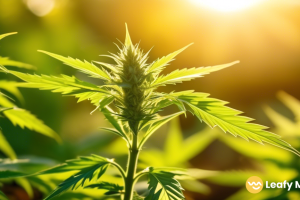
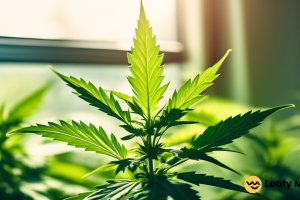
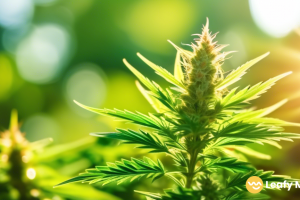




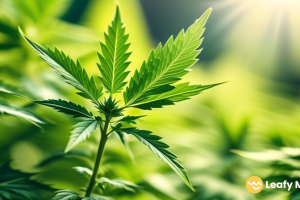
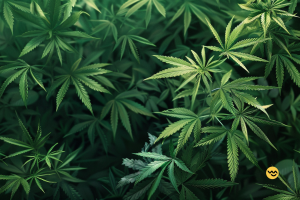
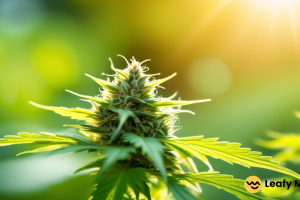
Leave a Reply